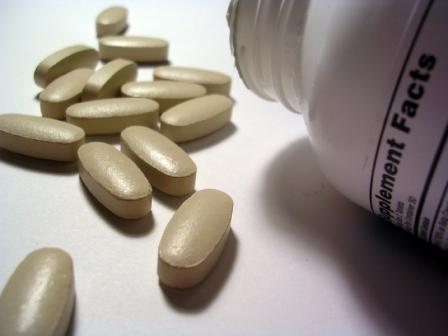
Osteoporosis, osteomalacia and strong healthy teeth, sure but do you know there are many more reasons that are body depends on calcium?
The contraction of muscles, release of neurotransmitters, regulation of heart beat and the clotting of the blood. (pg 149 Murray)
Calcium is a mineral that is abundant in our bodies. Mostly residing in our bones, the recommended daily allowance is 1,000mg for adults, higher for those deficient and those who are pregnant or nursing. For growing children it may be even higher.
We hear that we need to consume dairy, as it a prime source of calcium but then also hear that we should stay away from milk products because of the high growth hormone use in bovine... This is why we need to choose supplements.

As much as I believe "let food be your medicine and medicine be your food".. there are times when we can not stick to this rule because the foods that are available are less than healthy for us.
Foods that are high in calcium may not be as easily absorbed as you may think either, so lets take a look at some of the foods that have calcium and if they are easily absorbed. M. Murray N.D. has a list of foods that are high in calcium:
tofu, kale, spinach, turnip greens, and other green leafy vegetables, kelp and other seaweeds, cheddar cheese, and some nuts and seeds. Kelp being the highest out of all of them.
He also states that calcium from spinach is poorly absorbed yet calcium from kale is superior, even superior to milk. (turnip, collard, mustard are as beneficial as kale).
Just as with Vitamin D deficiency, (because Vitamin D helps with the absorption of Calcium) a deficiency in Calcium can lead to rickets, bone deformities and stunted growth and softening of the bones, high blood pressure, muscle cramping and spasms.
*magnesium should be taken with calcium- the magnesium-calcium relationship is important because it works together to increase the distribution of calcium across cell membranes while fighting to restrict calcium's access to myosin,a protein that helps muscles contract.
The Magnesium calsium ratio is usually a 1 to 2 ratio but consult with your nutritionalist or physicians as sometimes those numbers are different. Also, remember that it is always wise to consult your physician before supplementing because like other supplements, magnesium calcium may altar blood coagulation.
A special note to take your magnesium at a different time of the day than you take your calcium because the relationship seems to be antagonistic, so do not take in a mag-cal combo as it isn't as readily absorbed as taking each mineral seperately.
PRESCRIPTIONS THAT MAY REDUCE YOUR CALCIUM LEVELS;
Antacids
Antibiotics
Anti inflammatories
Diuretis
Ulcer medications
Diuretics
Aspirin
